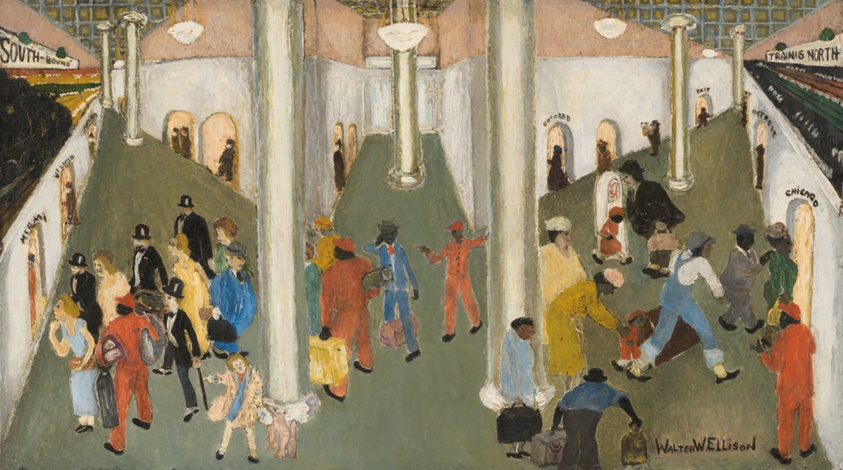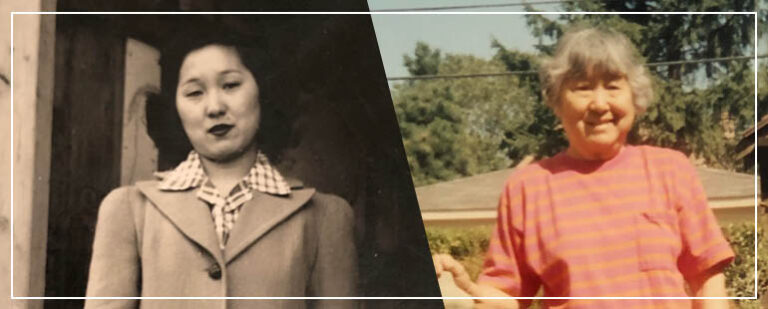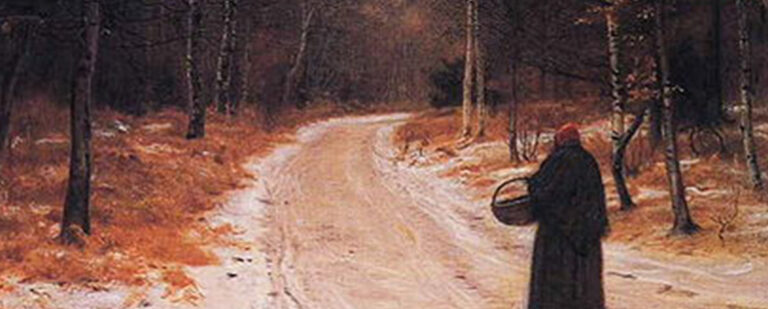Read Backwards You Were A Grandchild

I spend a lot of time thinking about loss, considering if what is missing has a form, wondering if there is a method to tracing what is not visible. There was a time when I thought that if I just had greater powers of imagination, or if I waded long enough among the detritus of family and cultural history that I could gather sufficient evidence, collect all the bones to make something of a complete structure. Now I only debate whether to move through the impossibility of recuperation with my own limited attempt to exhume through vernacular, an act necessitating its own failure, or to search for what seems equally impossible: a means to write my dead with a grammar that recognizes that loss is without teleology.
No story that I write can give shape to all my absences. No matter how measured and articulate, no pronouncement I can make can bring back the dead. I’m not trying to tell a better story anymore—I don’t trust narrative. The following is an attempt, undoubtedly failed, on how I might write against it.
You had a maternal grandfather. Reginald Jerry Clark. Dead eight years and a day prior to your birth. Read backwards you were a grandchild, to a Clark, who is gone, was dead. He is a porter for The Great Northern Railroad. You’ve known him in a photo, arched forward on a couch with his eyes closed. It seems important to say he is working in the sleeping car, that he will labor for 25 years. There is a past where your mother, Reginald’s daughter, tells you he hates this job, was hated, is equal parts invisible and not, will swallow whole train cars of bitterness, will have become a ghost. It seems important to say he is working 25 years and has retired without pension, is working in the sleeping car, will have had no rest over three hours that is not deducted from pay.
You have a child, read backwards a great grandchild of your maternal grandfather, who is fascinated with trains. After the track is laid and the train cars are placed on them your child will repetitively position something ahead of the cars’ arrival, several blocks or a book or a body part. They love watching the collision. Sometimes you hear them in the other room, laughing at another derailing.
There is a future where your maternal grandfather worked for 25 years on a machine that will harbor fantasies of progress, it is moving, forward, he is—will be—held in suspension, he was—there is—a coming robbery, he will die—is working—will not receive pension.
There is another time when your mother will tell you that all the railroad will give him is a pen with the number 25 on it. You are told this too would be stolen when your apartment is being robbed when you will be a child who had a grandfather.
Even as I write this, I am failing. There is too much order here. The theft was not an event.
Sitting with so many texts attempting to tear them from discipline, I’m struggling to rewrite the sentences, rewire their grammars to make any of them say something about you, to have them fabulate structure from shadow. I’m here at the terminal of my knowing, knowing this effort will likely end in failure. Memory is always grasping at something, it is always failing. I suppose I am in the habit of chasing the shadow.
I’ve considered and reconsidered how theoretical to be here. What to say about time, if blackness is always outside of it. If those carrying that signifier, a new world phenomenon born in the hulls of ships, are always already dead. The here gone and the gone gone. That double pronunciation a death post-mortem. Peter Geismar notes that Frantz Fanon, close to the so-called end, writes a letter to a friend in which he says, “death is always with us.” Like an article of clothing. Like a vital organ. A kind of spectral life.
My maternal grandfather’s father was a porter as well. I place a claim on knowing this based on early census records. And though there is documentation of his death on February 12, 1936, I have no record of him being born. This is not uncommon for black folks in the US in 1891 or 1890 or 1888 depending on where I am looking for my great grandfather. These records are a western colonial tool of knowing. A way to claim something. Rasheedah Phillips writes, in “Counter Clockwise: Unmapping Black Temporalities from Greenwich Mean Timelines,” how “Facticity means a thing can only take on the feature of being a fact, of being real, of being truth or a part of reality when it has been pinpointed to the linear timeline and assigned a date. Anything that cannot be pinpointed to a date on the calendar and time on the clock is not considered real, factual, event(ual) or as having happened.” Under these terms, only my great grandfather’s death is legible as having happened. Under these terms, one could question if he was ever among the so-called living. Death, a kind of fact of black life—not something that happens at life’s supposed end. Death is woven throughout it.
It is a spectral life I am attempting to make a portrait of, that I pursue, am harboring. I want to know something about the dying, something about the supposed naturalness of it. I want to know something of the borderland of life and death. For if the pasts I read I only read by way of official records, I will be lead no closer to an already distant and fragmented genealogy, and perhaps an attempt to make it cohere is a fraught one. In sifting through photographs and employment records, in conducting interviews and visiting archives, in then struggling to persuade them to say something about my grandfather are efforts that have always fallen short of anything meaningful. It is as though the closer I get to something fixed, the more elusive my grandfather. Much of what I am trying to do now is to move deeper into this abstraction. Most days it terrifies me.
In Kevin Young’s The Grey Album: On the Blackness of Blackness (2012), he discusses different types of what he calls shadow books. These are various types of books that “we know of” but that we “don’t have.” Peter Geismar, in Fanon (1971), writes that Fanon, towards the end of his life, envisioned writing a book on “a psychological analysis of the death process”—a book he was never able to get to. A ghostly text, that we “know about but don’t have.” The life of my maternal grandfather, of his father, of their time aboard the restless sleeping car, of the thousands of hours across decades, of the pensionless retirement and missing birth records, of death, also form a shadow book. There are claims that can be made, and others that must be fabulated. In each case fact is an insufficient tool.
In so many ways you are attempting to write your dead to say you had a grandfather, read forward that there was a past in which you were a grandchild, you are attempting to both name something and resist giving it form, you are failing, experimenting with entering into the fog without a compass against the limits of fact, to write the shadow without edges.


